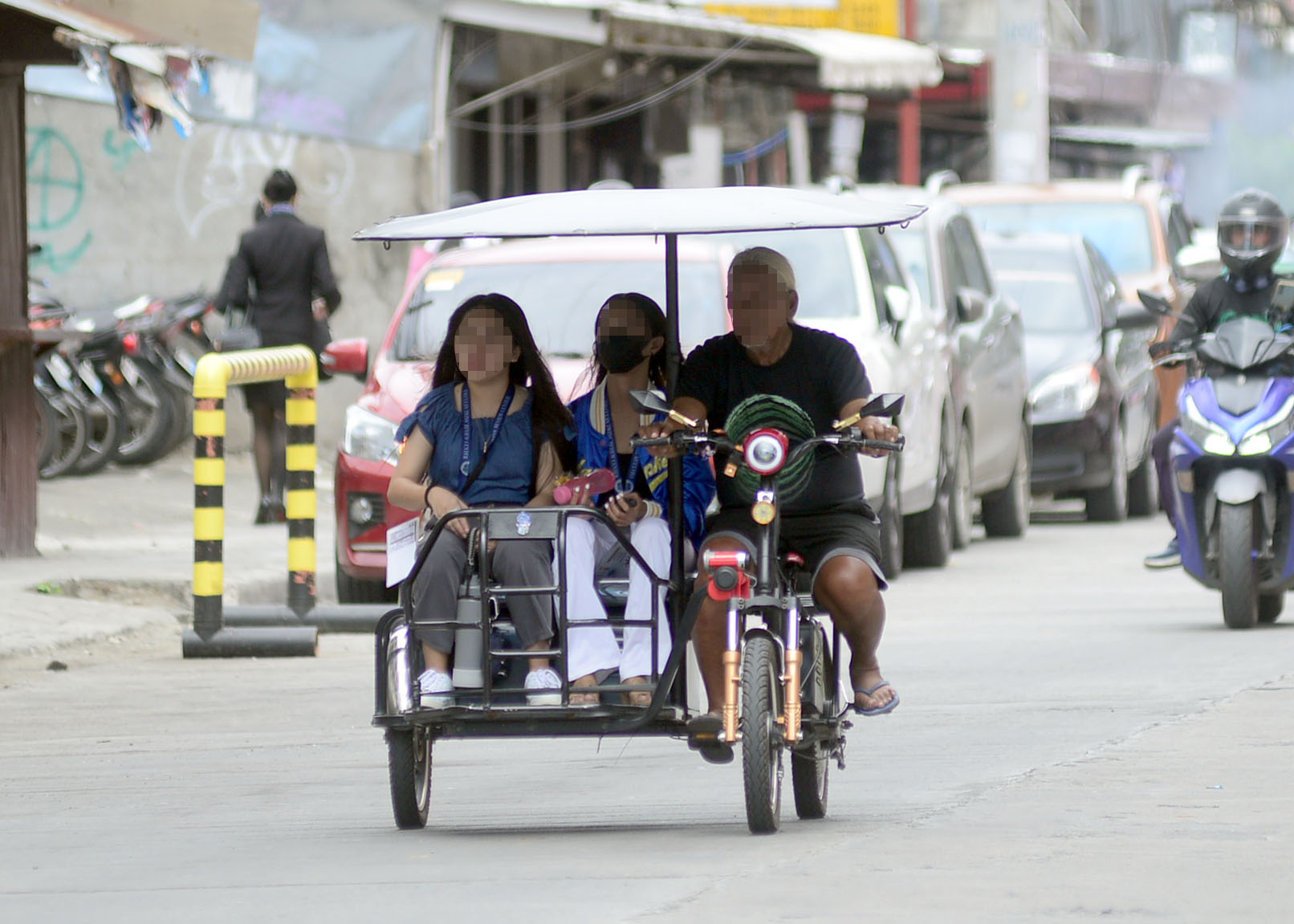THE 20TH City Council passed on the third and final reading on Tuesday the amendment of Article 16 of the city’s Comprehensive Traffic Code defining the “non-conventional pedal operated tricycles.”
The specific amendment is under Article 2 Section 5 (41) Definition of terms which previously did not include and define this type of transport vehicle.
The amendment recognized a new type of trisikad that has been emerging and being used as a new type of public utility transport most commonly known as “e-bike. ”
Non-conventional pedal-operated tricycle, as stated in the ordinance Article 2 Section 5 (41), is defined as a vehicle having three wheels and operated by means of a pedal and/or electricity, battery, or any other Non-conventional means, including a bicycle with a sidecar.
Councilor Conrado Baloran, proponent councilor, said in the committee report this movie is pursuant to Administrative Order No. VDMO 2924-044 with the subject, Amended Consolidated Guidelines in the Classification, Registration, and Operation of all Types of Electric Vehicles, mandates the Land Transportation Office to register roadworthy vehicles before its operation on or upon any highway of the country.
“In order to cope with the advancements in electric vehicle technology, there is a need to consolidate and update LTO current issuances and guidelines in registration and operation of electric vehicles,” Baloran said.
This includes LTO Administrative Order No. 2021-039; in both RA 4136 and RA 11697 or the Electric Vehicle Industry Development Act Law, vehicles that are used and operated on or upon public highways are required to be registered.
LTO XI regional director Eleanor S. Calderon, in a letter to Dr. Chona N. Advincula, Supervising Transport Regulation Officer, CTTMO-MVFRD Division Head, cited the legal basis pertaining to the proposed amendments relating to the operation of pedal-operated trisikad.
The CTTMO then requested the city council for the amendment of Ordinance No. 0334-12 Series of 2012 otherwise known as the “Comprehensive Traffic and Transport Code of Davao City.”
In the request letter, addressed to Vice Mayor Quitain and Councilor Baluran, dated August 2, 2022, and May 25, 2023, respectively, it was emphasized a new type of trisikad has been emerging and being used now as a new type of public utility transport most commonly known as ‘E-BIKE.”
E-bikes, as defined in the letter, are both battery and pedal-operated and become a substitute for the conventional pedal-operated trisikad.
“To make their operation legal as public transport as required under RA 4136 and RA 11697, all e-bikes must be mandatory registered in the CTTMO as individual owners or as a legitimate association or corporation,” the letter reads.
Their operations and restrictions, however, are still subject to all existing rules and regulations governing their operations as provided in the national laws and ordinances.
The definition of conventional or traditional sikad, on the other hand, shall remain as is in the Definition of Terms.
File photo by Bing Gonzales

